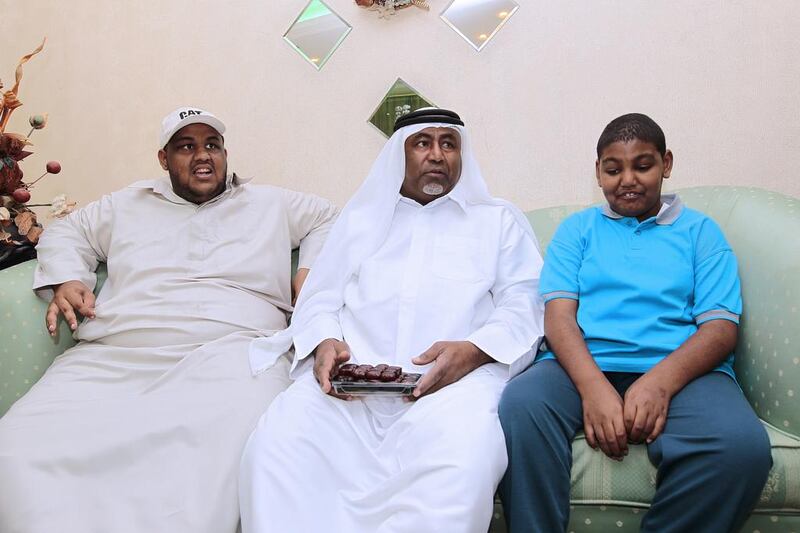DUBAI// Parents of special needs children have spoken of their daily challenges in the hope of creating a wider understanding of autism and other mental conditions in Dubai.
April 2 marks World Autism Awareness Day, with the “light it up blue” campaign encouraging people to wear the colour in a show of support. Buildings and landmarks, hotels and bridges will be illuminated in blue.
More children will be diagnosed with autism this year than with Aids, diabetes and cancer combined, or 1 in 68, according to the Child Early Intervention Medical Centre.
Autism is a complex neurobiological disorder that affects communication, behaviour and social relationships.
Five children of the Mubarak family in Rashidiya are autistic.
Al Jalila Foundation, a Dubai charity that supports research into certain medical conditions, offers families help through its Ta’alouf programme. It is empowering children and their families, while also training teachers to help children in mainstream schools.
Atiq Mubarak, 55, and his daughter, Ahood Khamis, 27, began the course in January. Five of Mr Mubarak’s other children – Abdullah, 22, Marwa, 16, Zayed, 13, Rashid, 11, and Qhalid, 6, are autistic.
“It effects them each in a slightly different way,” Mr Mubarak said. “The boys are hyperactive and very energetic, but Rashid is different.
“We would like the children to go to a normal school, it would be better for them. Qhalid is just 6, so we are hoping it will change during his school life.
“People act like they are stupid, but they are not. They say to me ‘why don’t you leave the children in the house?’ It is upsetting to hear.”
Twice a week Rashid goes to Al Noor Training Centre for Children with Special Needs in Al Barsha. He focuses his attention on music and computers, whereas Zayed is very organised and needs to have things in place.
The foundation has partnered with The British University in Dubai to offer professional parental training to help families cope with children who have a range of learning disabilities.
It provides participants with the resources and skills to ensure a continuum of care between the child’s home and school. The free course is provided in English and Arabic and is open to all nationalities.
Ms Khamis has volunteered at the centre since her mother died in 2009. It has, she said, given her a new understanding of the needs of her siblings.
“It is something I enjoy. The children at the centre are a part of me now and I can relate to them because I have something in common,” she said.
“I have seen children at this school do amazing things. This boy can speak Arabic, English and [Hindi]. He is just 12 and is a genius in maths and science.
“The reaction in the community to these children has been really bad. There is not a lot of understanding.
“Each child has their own way of thinking, and the course has shown us we need to take our time when teaching them.
“The problem is not with the children, but with society’s way of thinking towards them.”
Teaching techniques include using cards with images to show children the steps and routines they must do every day, such as brushing teeth or getting dressed.
So far, more than 200 families have completed the Ta’alouf course. It is hoped more children with special needs will be educated in mainstream schools in the future.
Dr Abdulkareem Al Olama, the chief executive of the foundation, said: “We want communities and families to live in harmony with these children. We can help do that by first helping the parents.
“We transfer them to a therapist and show parents how they can help their child and continue that therapy at home. We have helped give them their lives back.
“For us to complete the cycle, we can educate teachers in a specialist curriculum so we can put the children back into mainstream education.
“It is too easy for schools to kick out these children. There is a law preventing this, but not enough parents know about it.”
nwebster@thenational.ae






